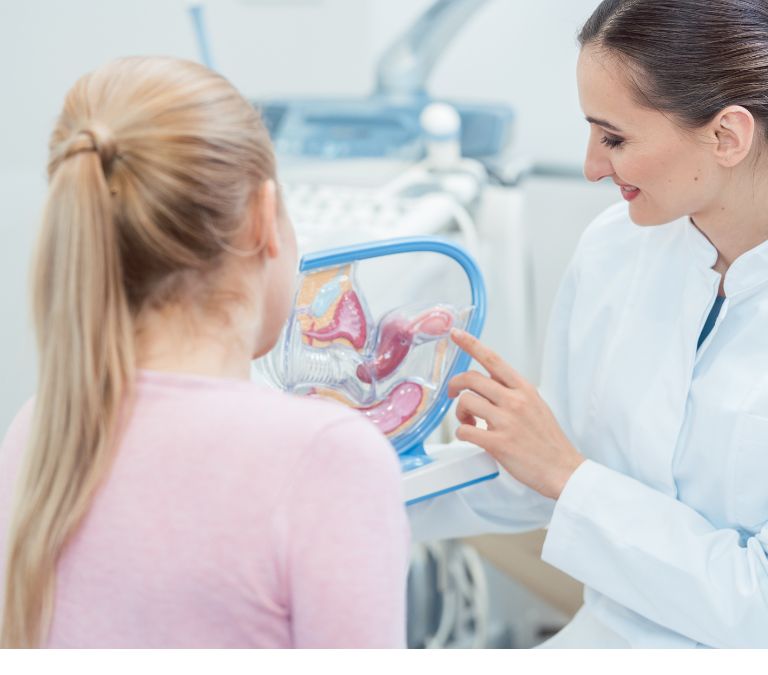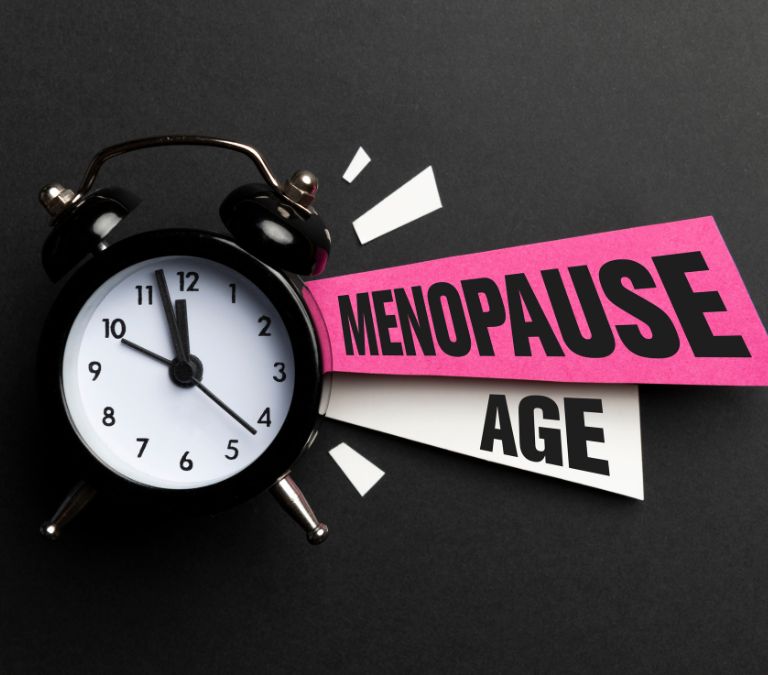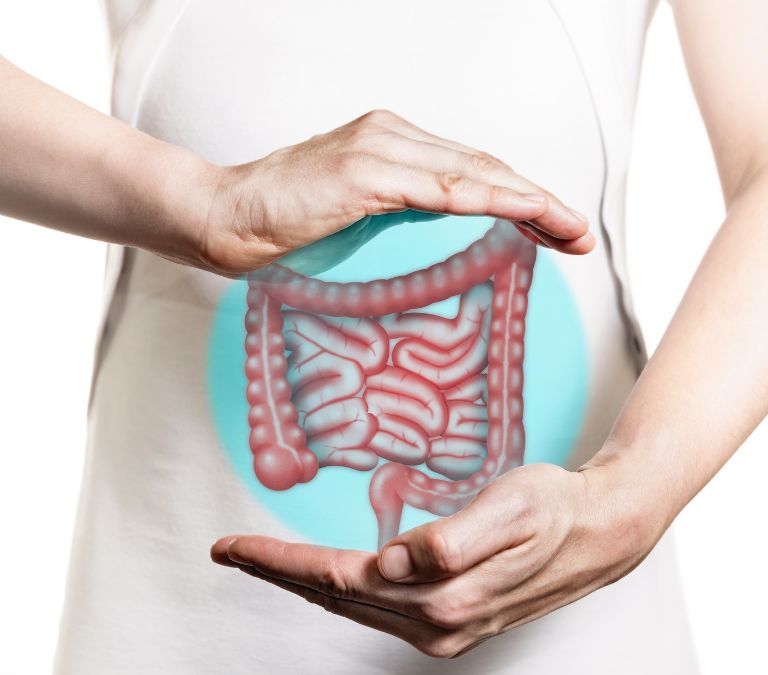Bowel cancer is the collective term used for any cancer that originates in the bowel region of the body (i.e., the part of the alimentary canal below the stomach). Bowel cancer is often regarded as rectal or colon cancer, depending on where it originates.
Studies have shown that the processes involved in treating this type of cancer can cause some significant changes in a woman’s body. From fertility to menopause and sex, let’s see how bowel cancer affects women’s important qualities.
Understanding Bowel Cancer
As stated earlier, bowel cancer originates from the bowel region of the body. In developed countries like the UK and the US, bowel cancer has become one of the most diagnosed cancers in individuals above age 60. Bowel cancer doesn’t spread fast compared to breast cancer and liver cancer.
However, they are very lethal when left untreated. Bowel cancer most often starts as a small polyp. With time, this tin polyp becomes cancerous. Taking out the polyp at very early stages may prevent it from becoming cancer.
Symptoms of Bowel Cancer
- Weakness or fatigue
- Abdominal discomforts like in the form of pains and cramps
- Rectal bleeding
- Persistent fluctuations in bowel mechanisms. It can come as inconsistency in stooling patterns, constipation, and diarrhea.
- Blood in your poo
Causes of Bowel Cancer
Like so many others, the cause of bowel cancer is not known. However, some things are likely to increase your risks and susceptibility. They include:
Age
90% of bowel cancer patients are over the age of 60
Weight
Overweight and obese people are more likely to be diagnosed with bowel cancer.
Sedentary Lifestyle
When you’re inactive or sedentary, i.e., you do not engage in exercises or other physical activities, you are more at risk of bowel cancer.
Consumption of Cigarettes and Alcohol

Reports have shown that people who smoke and drink frequently are 6 times more likely to get bowel cancer than people who do not take alcohol or cigarettes.
Genetics and Family History
Suppose you have a close relative (biological father, mother, or direct siblings) who developed bowel cancer before age 50. In that case, you are at a greater lifetime risk of being diagnosed with the condition.
Diet
People who add red and processed meat to their diet risk developing bowel cancer. Also, extremely low consumers of fiber are more prone to this condition.
Screening and Diagnosis of Bowel Cancer
Bowel Cancer Treatment
Bowel cancer can be cured using a combination of treatments. The treatment option is given to a bowel cancer patient depending on the location of cancer in the bowel and how far it has spread.
The treatment options for bowel cancer include:
Surgery
It is probably the most effective way of treating bowel cancer. Surgery involves removing the growth cause of coagulated cells from the body. This way, a large percentage of the cancerous cells is removed. Therefore, surgery remains the most effective way of curing bowel cancer.
In cases where cancer hasn’t had any significant spread, then the surgery could be all you need. In other cases, where cancer has spread to other bowel regions, you will go for other treatment options after surgery. Most times, chemotherapy and radiotherapy are the best next steps to take.
Chemotherapy
In chemotherapy, pills are taken to help kill any trace of cancer cells. Here, the body is subjected to highly sensitive and strong medication. Generally, chemotherapy kills fast-growing cells. This way, cancerous cells are targeted and killed. However, chemotherapy takes a very long time to work and is followed by radiotherapy if the cancerous cells are suspected of having gone into other areas.
Radiotherapy
Here, radiation is used to kill cancerous cells. In radiotherapy, the part of the body with cancerous cells is subjected to rays of very high energy levels. A radiation oncologist is a doctor in charge of giving radiation therapy to treat cancer.
Like other cancer types, the chance of getting a complete or total cure from bowel cancer depends on how far the cancerous cells have spread at the point of diagnosis. Surgery usually cannot remove it when it has become confined to the bowel.
Effects of Bowel Cancer Treatment on Fertility

From the main topic, so many people must have wondered how bowel cancer could be able to jeopardize fertility. The truth is that some treatment options for bowel cancer can make a woman completely infertile afterward. In addition, since the bowel is located in the same region as the reproductive system, the chance of it getting damaged from chemotherapy and radiotherapy is usually high.
Studies have shown that chemotherapy can induce either temporary or permanent infertility. Sometimes, chemotherapy can make the periods irregular and then completely terminate them. While the periods can cease, they can return after treatment is completed.
However, the return of periods doesn’t necessarily mean that the woman’s fertility is back. Chemotherapy drugs can mess with the reproductive system, leading to induced menopause.
Radiotherapy is the cancer treatment option that involves subjecting the cancerous region of the body to violent and high-energy radiation. The bowel is close to the reproductive system; if radiotherapy is chosen as the preferred option for treating this cancer, you are at risk of being infertile.
The delicacy of the reproductive tract cannot be overemphasized. With this, bombarding this delicate, complex, and vital organ with high-energy radiation can affect the uterus and reduce the chances of a successful pregnancy.
So many women who have been placed under some chemotherapy or radiotherapy for bowel cancer, and still desire to have children, are usually advised to go for in vitro fertilization (IVF) or store their unfertilized eggs.
Women are advised to use contraception during chemotherapy and radiotherapy as a preventive measure. After treatment ends, the contraceptive is used until about a year later. With this, you can prevent damage to your eggs and your baby if you’re pregnant.
Before going for any treatment for bowel cancer:
- Ensure you have a detailed conversation with your doctor.
- Ask questions about your chances of still being fertile even after treatment.
- Make sure you’re very satisfied with your reply before going for treatment.
Effects of Bowel Cancer Treatment on Menopause
That period of every woman’s life where her ovaries permanently lose the ability to produce eggs, when her periods stop, and it becomes practically impossible to give birth; that’s menopause. I’m sure you know a thing or two about menopause.
Generally, the average age for a woman to go into menopause is in her early 50s. In the United States, the average menopausal age stands at 51. However, some women can enter this phase about 10 to 15 years earlier. It is called premature menopause or early menopause.
Research have been able to link illnesses, medical procedures, and genetics to causing premature or early menopause among women. However, it is important to know that while menopause is predominantly natural, it can be induced by other causes that are not natural. With this, the reason for premature or early menopause is not always linked to illnesses and genetics.
Induced Menopause

Sometimes, menopause is triggered by medical and surgical interventions. However, the entire concept of induced menopause is that it doesn’t happen independently. Most times, induced menopause results after surgical procedures remove the ovaries.
In some other cases, induced menopause could be caused by the exposure of the ovaries to harmful radiation or when a woman is undergoing chemotherapy. With this, the ovaries lose the ability to do the only thing they are known to do; produce eggs. It results in the complete infertility of the woman even before getting to the menopausal age.
Spontaneous Menopause
Spontaneous is also known as natural menopause. Spontaneous menopause occurs at an average of 52 years. It is important to know that spontaneous menopause is natural but can also result from defects, illnesses, and genetic factors. Unlike induced menopause, spontaneous menopause takes a process and does not happen all of a sudden.
Joan Hathaway, 33, from Massachusetts, was diagnosed with stage 2 bowel cancer in 2013. After just 6 months, it entered stage 3. Of all the options available for cancer treatment, her oncologist picked radiotherapy as the best treatment option for Joan.
After about 5 years of intense treatment, diet and lifestyle changes, and countless therapy sessions, Joan was declared cancer-free. Today, Joan is coming out to share with us her bowel cancer journey and how she was able to live with menopause at a very young age.
Joan’s POV
I’d say bowel cancer is the most awkward type to have if you should all have cancer. Bowel cancer doesn’t just affect your physical and mental health; it goes further to make you question your very existence. I began treatment for bowel cancer about 7 months after my diagnosis.
I know it sounds like I delayed a lot, but trust me, I was ready to let it all go and settle for bowel cancer as my cause of death. Every delicate area of my life was affected, and the only thing I needed was a cup of ice cream to spend my last days doing something I loved.
After much convincing from my husband, Nate, and mom, I decided to go for the radio. The bowel is close to the pelvis region, and the reproductive system is close to the pelvis region. It simply meant that I could kiss goodbye to my reproductive years and enter a new phase of menopause.
Regardless of the treatment, I decided to go for, whether chemo, radio, or surgery, my fertility status was still affected. Unfortunately, in the United States, more women below 50 are diagnosed with bowel cancer. The good news, however, is that the mortality rate is reducing.
Finally, I went for pelvic radiotherapy, which changed my life forever. While in the hospital, I read so many books on bowel cancer. One thing was 93% fact; pelvic radiotherapy will affect the fertility of both men and women. One sad thing about pelvic radiotherapy was that it wasn’t much choice.
This sort of radiotherapy was the primary way of treating bowel cancer. During my treatment, my oncologist was already giving me brief lectures on what the life of menopausal women feels like. She told me of the hot flashes, the night sweats, and weight gain.
One step at a time, I made my way through every treatment, and in about a year, I was given the freedom to stop treatment. However, after stopping treatment, I was left with the burden of adjusting to this new phase of my life. So here is it: I went through a series of tests and scans, and they confirmed that I was now infertile and officially in menopause.
While it sounded awful and sad, my making it through treatment was something I was most proud of. It is important to know that not all women will become infertile after bowel cancer treatment. Some women finish treatment and are still able to conceive children. The problem is that sometimes, infertility is inevitable, and you must go through it.
In the United States, so many doctors do not inform their patients of the risks of the surgery and other processes affecting their fertility status. Instead, they tell the patient to have hope and be positive.
So, I got into menopause at about 38 years old, and it hasn’t been that bad. However, the downs were sometimes so overwhelming that I was left to reconsider why I opted for treatment. According to research, women who go into early menopause are bound to undergo even more menopausal complications.
The hot flashes were alarming, the diet changes were very uncomfortable, and I was always reminded of how I was at an increased risk of developing breast cancer and type 2 diabetes. After a few years, I went for hormone replacement therapy, which according to my doctor, will help alleviate most of the symptoms I have been complaining of.
All my discomforts were caused by irregularities in the levels of some important hormones in the body. Hormone replacement therapy will help me balance the level of hormones in my body, therefore removing the symptoms. I went for hormone replacement therapy, and I can comfortably say that I no longer feel severe symptoms.
Beating bowel cancer is a big deal; I see it as a reason to wake up from bed every day. But, even if I can no longer bear children, I still live life to the fullest with my husband, and my two adopted kids, Lydia and Sansa.
Like many other bowel cancer patients in the United States, Joan was subjected to menopause at a very early stage. The average age for menopause to begin is at age 51. Women who go through menopause at earlier stages tend to experience the same symptoms as those experienced by women going through natural menopause but at even heightened risks.
These risks include earlier death, osteoporosis, heart and cardiovascular diseases, sexual diseases, and dementia. Also, Women who get into menopause on or before their 40s are at risk of diseases like cognitive impairment, osteoporosis, parkinsonism, CHD, and sexual dysfunction. Women, especially those in their 30s and 40s fighting bowel cancer, need to be provided with all the love the world offers; they genuinely need it.
Effects of Bowel Cancer on Sex

Women fighting bowel cancer are usually advised to stay away from sex 6 weeks after surgery. While bowel cancer could be capable of diminishing your sex life, it is important to know that only a few women tend to feel a phobia of sexual intercourse after treatment for bowel cancer. Most women who have fought bowel cancer can still have a normal or even an amazing sex life after having bowel cancer.
So many women fighting bowel cancer tend to lose the urge to have sex while taking treatment. However, this effect is temporary and will not go further with time. As stated earlier, some bowel cancer treatments could affect your fertility status. It means that women who conquer bowel cancer lose their fertility.
They will have to engage in sex for pleasure and not for reproduction. Also, women tend to go through trauma after being informed of their loss of fertility. With this, they can decide not to have sex for a while. However, these side effects are temporary and will be gone in no time. Some women may find that the vagina shrinks a bit and becomes narrower after going for pelvic radiotherapy.
To cure this, doctors advise that you engage in regular sex. With time, the vagina will go back to normal. Also, anal sex can become difficult to practically impossible after having treatments for bowel cancer. The type of bowel cancer may require your doctor to remove the entire rectum and anus. In this situation, you won’t be able to engage in anal sex.
While the understandable decline in sexual desire is often affiliated with the distortion caused by the trauma from the treatment process, the time it takes to overcome and regain every lost confidence can stretch to very long periods. You tend to see your body differently during and after treatment.
As a result, you often feel betrayed by it. While this may sound exaggerated, it is important to know that the trauma and emotional damage from the diagnosis to the treatment of bowel cancer can leave deep and hurtful scars, most of which we cannot comprehend.
While good treatment and support systems could be available in the United States, women in some other parts of the world do not even get the tiniest support they need. With this, getting the best treatment, care, and support depends on what part of your world.
After all these challenges, women might become erotophobic (fear of sex or intimacy), which will mess up their sex life. As a remedy to this, studies have shown that women who go for counseling and support tend to have their fear of sex reduced.
Living with Bowel Cancer
Bowel cancer can affect your life in several ways, depending on the type of treatment you’re having. Joan described cancer as the most awkward type, and we couldn’t agree more. Living effectively with bowel cancer depends on the individual. While you go for treatment, you must have all the forms of support available for you. Some forms of support available for you include:
- Find out as much as possible about your condition.
- Make time for yourself.
- Communicate with other people going through the same situation. You can join a bowel cancer support group.
- Make time for yourself.
- Avoid doing too much to overexert yourself.
- Talk to your friends and family — they are the best support system for you.
- Be friends with your doctor.
Just like Joan said, beating bowel cancer is a big deal. But before you can beat something, you have to face it first. In the same way, before you can beat bowel cancer, you have to start treatment first. Even if treatment could sometimes cause unwanted occurrences, always know that there are many good things life has to offer. You have to be here to enjoy them.







